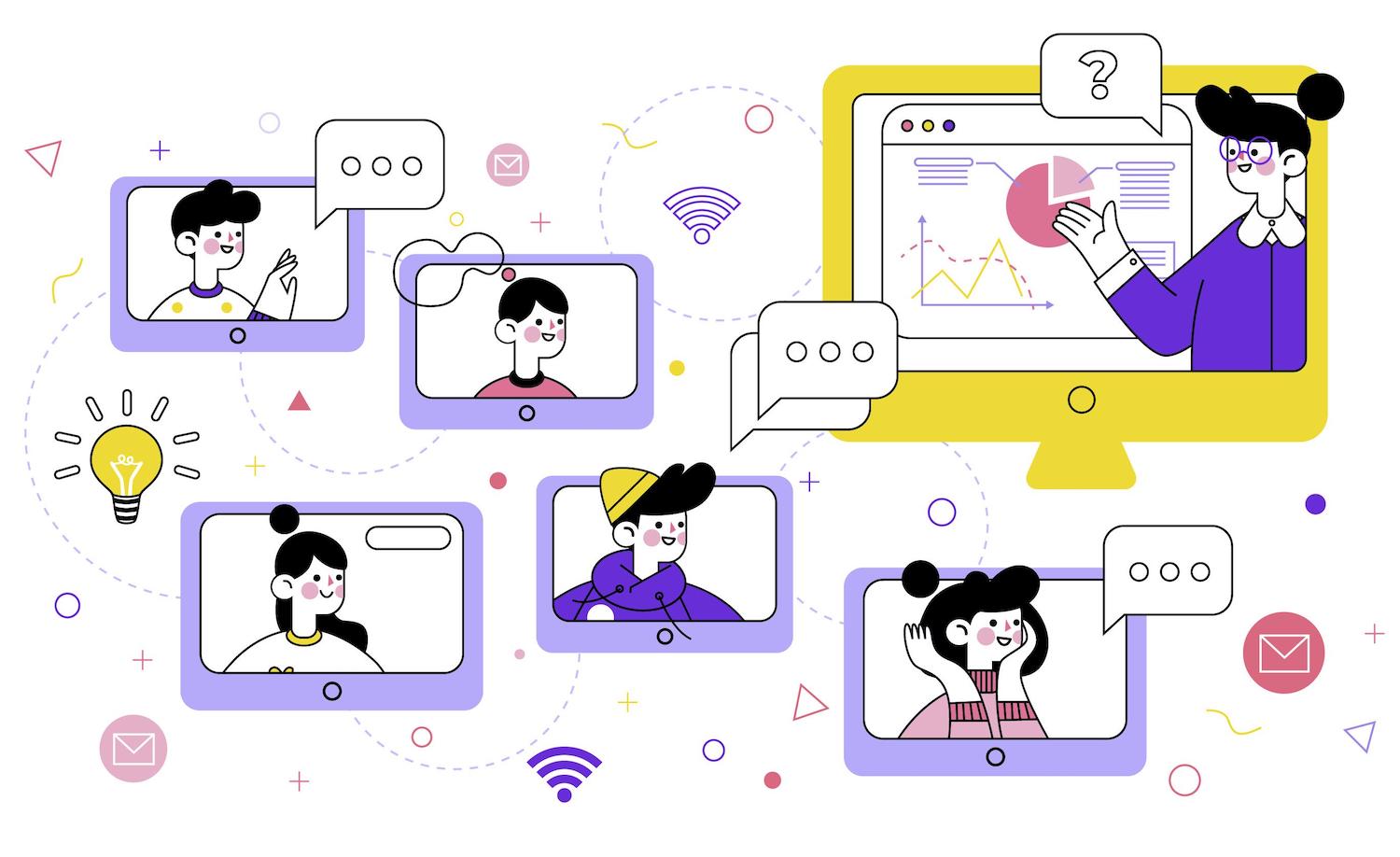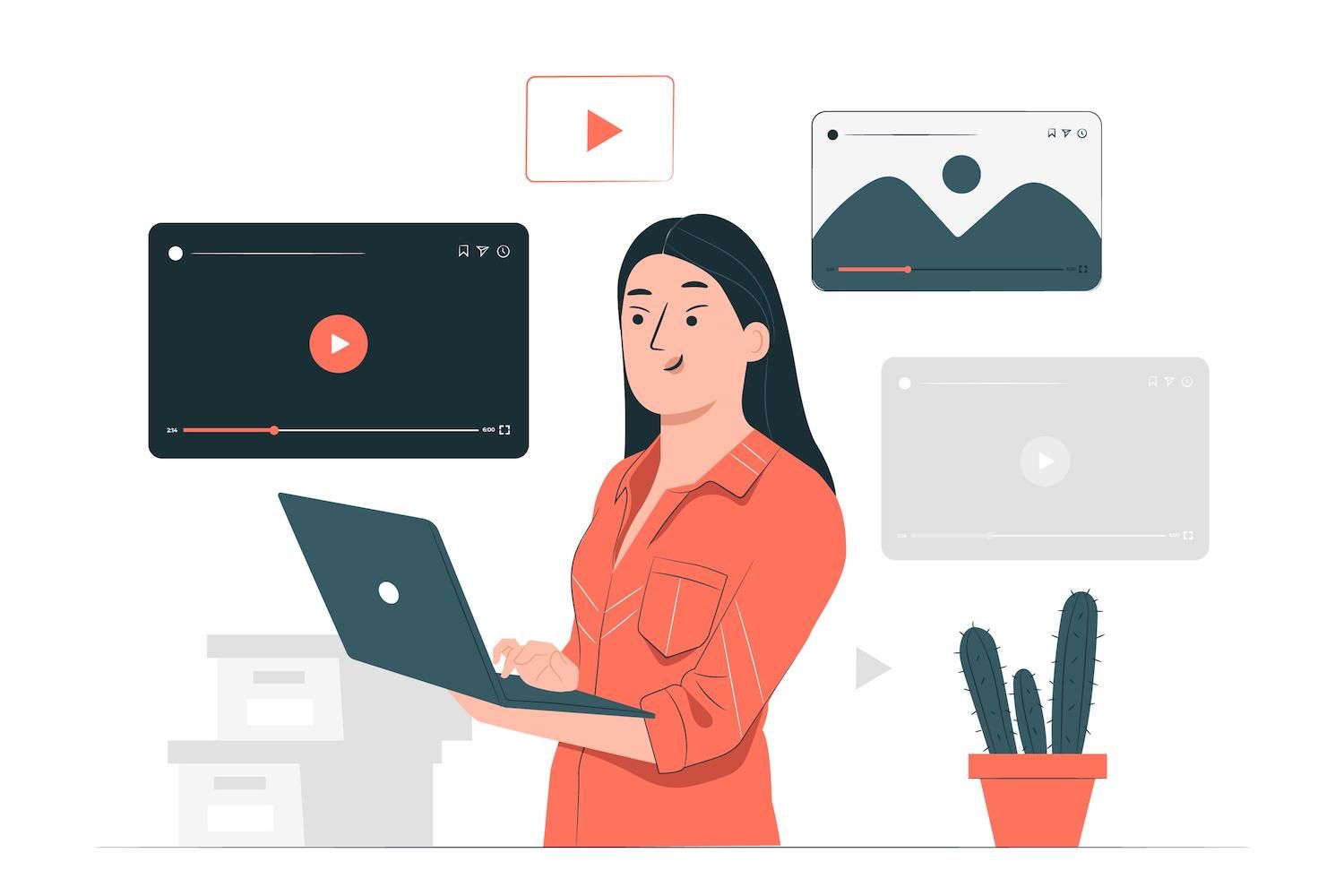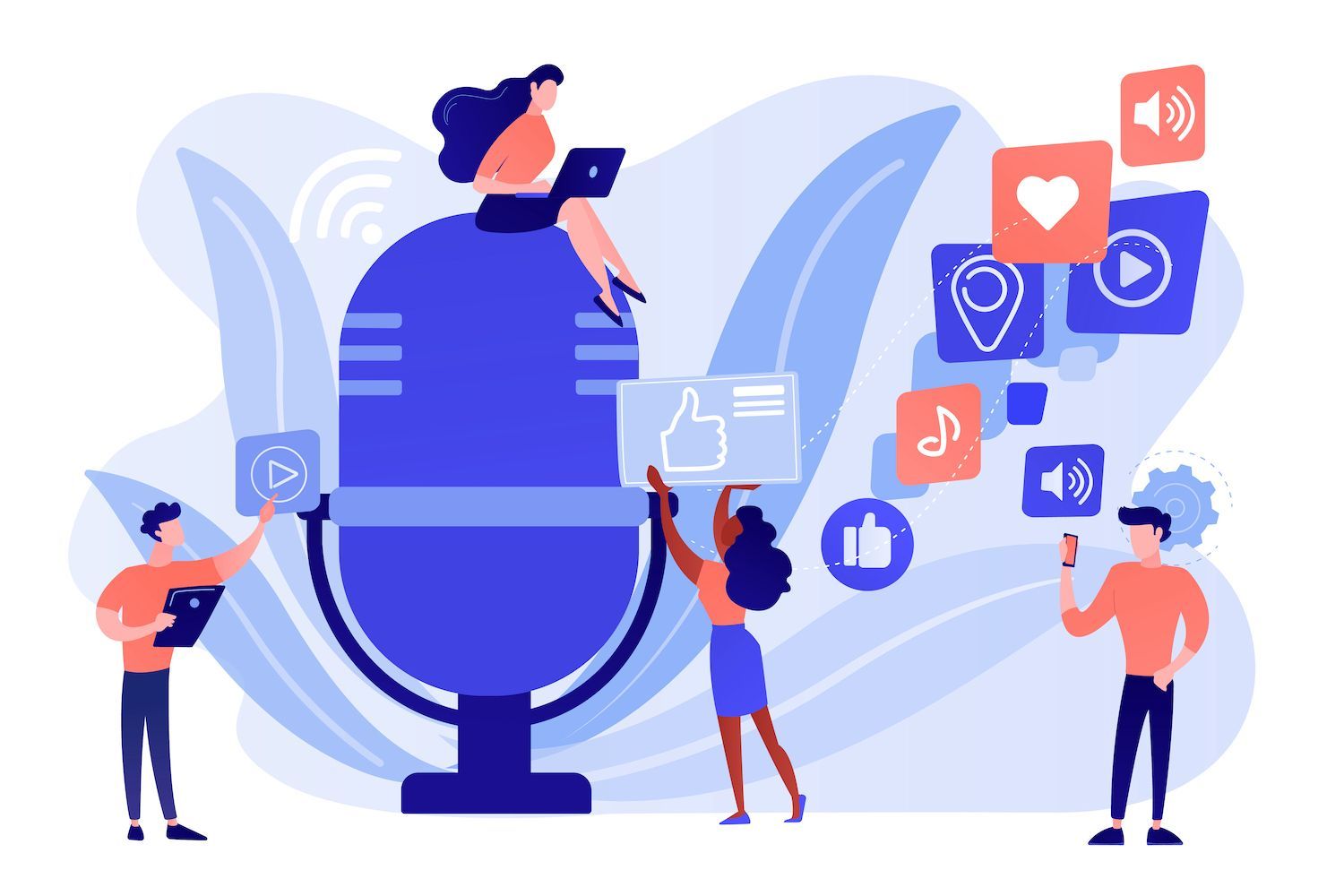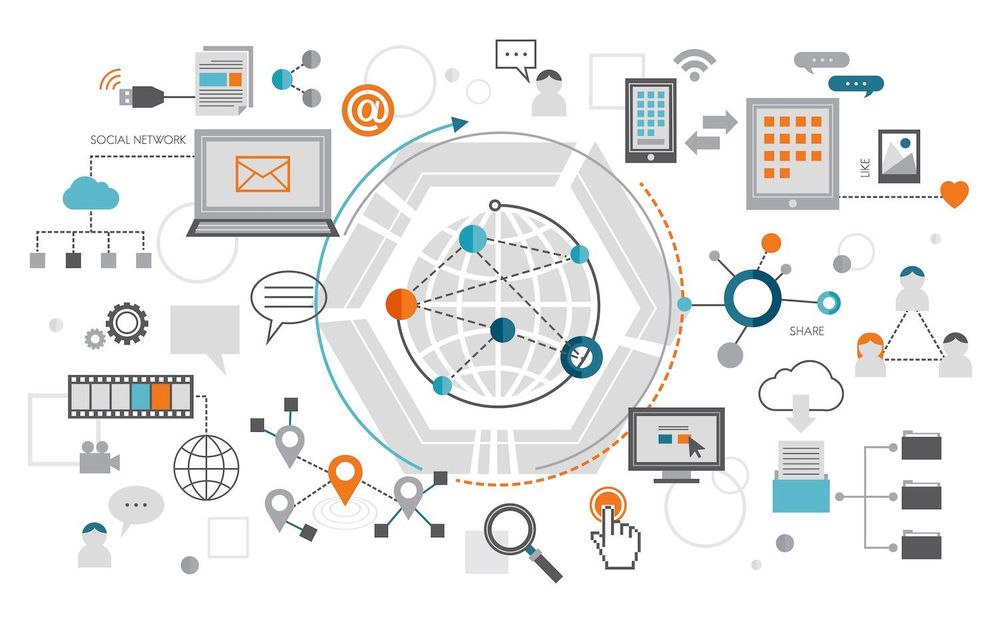What is exactly user-generated content? + Examples |
What was the process that assisted Meta create a platform that makes $44 for each user? How came LinkedIn make $8 billion from charging all users all the way from recruiters to members to employers?
Look up the biggest social media firms with a market value of billions, and you'll see the value of their services is tied to the customers they serve. What users create is the key to the growth of these huge corporations. It's what drives community forums on the internet, brands communities like Discord, Medium and even the comments part of blogs if there's something else that's known as. As an online social network We have a unique view of how UGC can create vibrant communities. the majority of them grow into six, 7- or even business with 8 figures also.
In this article we'll discuss:
- HTML0 What type of content created by users can contain.
- Why is it efficacious? (plus advantages and cons).
- Examples of UGC.
- What are the steps to unlock UGC for your company's brand? your company.
What exactly is user-generated content (UGC)?
Content created by users is anything created by people who use websites, not the original creators regardless of whether the content includes video or written text or other. Most social media platforms depend on content from users, however also many websites online like forums, sites and communities. Most of them operate with a commercial model, where the platform offers its users with a program and they will provide the information.

If you're not the most popular social media user you can still use UGC in your favor. The majority of users are successful because of the content created by users which people post to form an online community. Learn something they are keen on, and engage in many great conversations.

What exactly is HTML0? UGC helps companies
Are you familiar with the application Clubhouse? The app was advertised to be a social listening application that would be worth around 4 billion before 2021. It was only available to members (you had to sign up for an invite) and featured regular appearances from famous celebrities such as Oprah Winfrey, Elon Musk and Kevin Hart, and it was a huge hit.

As the regulations concerning pandemics were eliminated, Clubhouse had a tough retention problem, and has recent cut its staff. The number of users who are active at Clubhouse has decreased for some time now about 10 million per week. Comparatively, Pinterest boasts 482 million monthly users.
Threads is a platform that has been in use for a while. Threads platform is a fascinating instance. It reached the milestone of 100,000 active users in just four days! But, over the next few weeks, the number only was 60 million. It appears that the growth has been slow, despite the fact that Meta isn't making the information publicly accessible anytime soon.

Source: Statista
A user base of 160 million using Threads is nothing to be snoozing at. The competition X (Twitter) has of more than 600 million users per month.
Success or failure for these platforms, as well the billion-dollar value of these companies are contingent on two aspects: 1. Can people show up? 2. Do they make content? Nothing else really matters.
This is also true for member-based communities as well. We've discovered that we're in a position to predict with accuracy 93% how an online community can prosper or falter. Two things are essential 1). Do people sign up? 2. Do they make a friend? The data was so powerful that we've begun to explore the development of a system that can do more than just host for UGC since it can also help UGC members connect with one another.

The base of all this is the social element that is a part of a social network online. Social networks' theories suggest that they are an individual-centered community that is built on. What's it about this that creates Facebook one of the most popular platforms with over 3 billion people using it? Maybe it's because of the fact that Facebook is actually rooted in social networks that are personal to you. There are times when you become angry at someone you've never met on Twitter and choose to remove the platform. If Facebook is the platform for you to chat with your grandma and mom, and also sell things in your garage, it's likely you'll be tempted to stay on it.
To allow UGC to actually build an actual business, it shouldn't simply be about throwing stuff into the air. The creation of incessant AI postings on social media doesn't work well for the company you work for to expand its exposure.
It's why the reason blogs and social media along with Reddit the main benefit to these platforms is the engagement they provide.
UGC is the name used to define the act of engagement. The people who create content. People who use the content. If you do not have UGC then you don't possess engagement.

The content created by users comes with both advantages and disadvantages.
Content created by users has many advantages for the users who host or own platforms.
The impact: Keeping their users active can accelerate the production of content faster and far beyond what could be done by just the website or company. The social media giants produce very little or no material. For example, YouTube estimates that around 500 hours worth of video content are uploaded per minute! There is no way for any company to produce the same amount of content regardless of AI.
Conversations between users that are directed by the user: There's an array of bizarre and fascinating topics people can talk over online. UGC lets users create conversation and content that they're passionate about.
A variety of viewpoints: UGC gives people voices-especially people who may not be heard in the media. Anyone can take part. Anyone can share their thoughts.
The impact of networks: The term "network effect" describes the way in which communities and platforms get more effective each time a new member joins they receive.
Improved customer experience for businesses or brand. Users-generated content can be employed to improve customer experience as well as the quality of the customer experience. For instance Apple's Apple customer community consists of members who can help answer questions on their own schedule.

There could be disadvantages associated with generated content by the user:
- False & mis-information: With no gatekeepers UGC lets anyone create any type of information. Indeed 55% of Americans claim that inaccurate information is a concern which should be dealt with, UGC can be a element of the issue.
- Bullying and intimidation: UGC generated by the creators of content and those who respond (e.g. through the comments) may refer to intimidation, bullies or content that specifically targets one or more groups of people.
- Moderation Moderation for community hosts and other social media firms which moderates is now a crucial element of hosting UGC.
Don't let this dissuade you from accepting the creation of content from members of the community. The negative impact can be mitigated with a well-designed community moderation system and guidelines. It is possible to provide users with a means to assist in moderation is an excellent help (e.g. the "report the comment" option ).
If your clients put in the time and effort to your company, the majority of them would like it be positive. They'll generally be glad to aid by permitting moderated behavior.
Content created by users
- Scale content creation fast
- Integrate different voices and points of view of view
- Increase organic reach and conversations
- UGC will bring more customers to your site (e.g. when it's used in a cooperative manner) increasing your audience
User-generated Content: The downsides
- More risk of obtaining wrong or insufficient data
- Intimidation and bullying
- Moderation is required
The content created by users
A Mighty Network
A Mighty Network is a platform that allows Hosts the capability of connecting groups to change people's lives. Users can engage in discussions, live streams, broadcasting live events, and much more. Communities that are successful have an active and engaged membership. (See these cases ).

The photo-sharing app started with the intention of letting anyone upload photos that included filters. The app quickly gained popularity and since was expanded to include additional features like Reels and boasts more than 2 billion users.

YouTube
In the preceding paragraph, we mentioned that there are 30,000 hours of brand new content posted on YouTube each hour. It would take you more than 1900 years to look at the newest video content uploaded. YouTube is an absolute beast in the realm of UGC. In fact, with 30% of youngsters saying that they're YouTubers "dream works" the site has created an impact on our collective imagination. If they're able to make income from their content, and generate revenue through the views they receive or from other content, YouTube is a juggernaut to UGC.

Blog Comments
This isn't as prevalent nowadays though, but creating blogs, and then responding to comments posted on blogs was commonplace for posts written by people. This is still the norm on a few blogs particularly for blogs such as Medium. Certain news sites on the internet do this also.

Local Reviews
There's been some discussion on social media, but reviews about restaurants and attractions. through Google or Yelp provide a great illustration of UGC.

This is the Review for the Product Reviews
As with local reviews review product information prior to making purchases on Amazon or another online retailer. .
Forums
If you've spent any time within any community online such as Reddit or Quora you'll find the large amount of members who visit these forums, and create content to help keep the sites operating. Reddit will have 53 million people in the year 2025.

Strategies for unlocking UGC
1. Create amazing content
The most crucial element is the fact that UGC will most likely come from great content. There are a myriad of software programs that can help you produce a lot of content. It is possible to make AI texts, and then disperse the text.
But, good content sticks apart and sparks discussion. When the content is genuine people will be drawn to engage in discussion or even create.

2. Create niche spaces
Imagine who is in charge of algorithms. Hootsuite says that the mean participation rate of a Facebook Page post is 0.07 percent. What type of UGC thrives in a digital environment where it isn't seen? Do you happen to be the kind of person who would like to produce material that nobody has access to?

It's important to create spaces that aren't based on algorithmic processes that permit users to collaborate and exchange ideas. Email. Online communities. Chat rooms. Apps. Spaces need to be designed that do not rely on algorithms to let you get access to UGC.

3. Memorable social media campaigns
Although algorithms are constantly evolving, UGC is still possible through social media marketing campaigns. Choose a platform, and then create material that is engaging. You can also find creative ways to attract people. Incorporating a contest or reward for those who participate could also boost participation!

4. Reviews
One of the most important kinds of UGC for a brand is reviews, testimonials, as well as other forms of feedback which are positive (negative feedback can be beneficial, though in a different fashion.) Getting UGC through review websites, especially in the case of a product you sell as well as local reviews when you're making use of Google is essential as more of us review sites influence us to purchase. If you've put up testimonials on your site, UGC can be really useful in that respect also.
If you are in the position of receiving UGC feedback, don't be apathetic about contacting. Simple prompts for users to provide reviews or ratings could make all the difference in the efficiency of activity.
5. Gamify donation
If you want and need UGC and gamification, then the whole process could have an enormous impact. In the case of Apple, for instance, its Brand Support Community is largely run by its users, and includes numerous volunteers available to help when you have queries. This process is now enhanced with achievements and an individual community accessible only to those who are the most prolific contributors. Gamification or rewards could motivate creators of content to make content.
Conclusion
In the end, UGC can be a significant source of content for consumers. Many of the world's most renowned brands have used UGC to boost their value. Yet, regardless of the number of people who contribute the content, or even a small group of people sharing their thoughts, UGC taps into human imagination in a way that's awe-inspiring.
Then Read: 11 kinds of communities online that are thriving
Article was posted on here
This post was posted on here
